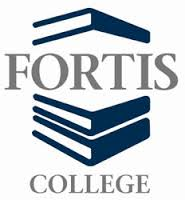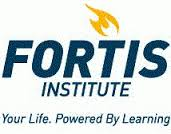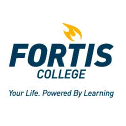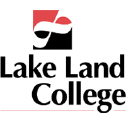What do they do?
Install, set up, rearrange, or remove switching, distribution, routing, and dialing equipment used in central offices or headends. Service or repair telephone, cable television, Internet, and other communications equipment on customers' property. May install communications equipment or communications wiring in buildings.
Also known as:
Broadband Technician, Cable TV Tech (Cable Television Technician), Central Office Technician, Combination Technician, Communications Technician, Customer Service Technician (CST), Field Technician, Install and Repair Technician, Installer, Maintenance Technician, Network Specialist, Network Technician, Outside Plant Technician, Repair Technician, Satellite Specialist, Service Technician, Special Equipment Technician, Telecommunications Switch Technician, Telecommunications Technician, Telephone Repairer, Telephone Technician (Phone Technician)
-
1.9%
Change
Ranks #26 in job growth rate400Job Openings
Ranks #16 in net job growth
Colleges with the most graduates that become Telecommunications Equipment Installers and Repairers, Except Line Installers
Looking for colleges that offer a specific major? Use the College Match Tool to find your best-matched schools and discover your estimated Net Price!
- Some college, no degree (35%)
- High school diploma equivalent (28%)
- Associate's degree (17%)
- Bachelor's degree (12%)
- Less than high school diploma (4%)
- Master's degree (3%)
- Doctorate or Professional Degree (<1%)
People in this career often have these skills:
- Troubleshooting - Determining causes of operating errors and deciding what to do about it.
- Repairing - Repairing machines or systems using the needed tools.
- Critical Thinking - Using logic and reasoning to identify the strengths and weaknesses of alternative solutions, conclusions, or approaches to problems.
- Operations Monitoring - Watching gauges, dials, or other indicators to make sure a machine is working properly.
- Quality Control Analysis - Conducting tests and inspections of products, services, or processes to evaluate quality or performance.
- Active Listening - Giving full attention to what other people are saying, taking time to understand the points being made, asking questions as appropriate, and not interrupting at inappropriate times.
- Equipment Maintenance - Performing routine maintenance on equipment and determining when and what kind of maintenance is needed.
- Reading Comprehension - Understanding written sentences and paragraphs in work-related documents.
- Monitoring - Monitoring/Assessing performance of yourself, other individuals, or organizations to make improvements or take corrective action.
- Complex Problem Solving - Identifying complex problems and reviewing related information to develop and evaluate options and implement solutions.
People in this career often know a lot about:
- Customer and Personal Service - Knowledge of principles and processes for providing customer and personal services. This includes customer needs assessment, meeting quality standards for services, and evaluation of customer satisfaction.
- Telecommunications - Knowledge of transmission, broadcasting, switching, control, and operation of telecommunications systems.
- Computers and Electronics - Knowledge of circuit boards, processors, chips, electronic equipment, and computer hardware and software, including applications and programming.
- English Language - Knowledge of the structure and content of the English language including the meaning and spelling of words, rules of composition, and grammar.
- Mathematics - Knowledge of arithmetic, algebra, geometry, calculus, statistics, and their applications.
- Public Safety and Security - Knowledge of relevant equipment, policies, procedures, and strategies to promote effective local, state, or national security operations for the protection of people, data, property, and institutions.
People in this career often have talent in:
- Oral Comprehension - The ability to listen to and understand information and ideas presented through spoken words and sentences.
- Problem Sensitivity - The ability to tell when something is wrong or is likely to go wrong. It does not involve solving the problem, only recognizing that there is a problem.
- Near Vision - The ability to see details at close range (within a few feet of the observer).
- Visual Color Discrimination - The ability to match or detect differences between colors, including shades of color and brightness.
- Arm-Hand Steadiness - The ability to keep your hand and arm steady while moving your arm or while holding your arm and hand in one position.
- Manual Dexterity - The ability to quickly move your hand, your hand together with your arm, or your two hands to grasp, manipulate, or assemble objects.
- Finger Dexterity - The ability to make precisely coordinated movements of the fingers of one or both hands to grasp, manipulate, or assemble very small objects.
- Deductive Reasoning - The ability to apply general rules to specific problems to produce answers that make sense.
- Inductive Reasoning - The ability to combine pieces of information to form general rules or conclusions (includes finding a relationship among seemingly unrelated events).
- Information Ordering - The ability to arrange things or actions in a certain order or pattern according to a specific rule or set of rules (e.g., patterns of numbers, letters, words, pictures, mathematical operations).
- Oral Expression - The ability to communicate information and ideas in speaking so others will understand.
- Flexibility of Closure - The ability to identify or detect a known pattern (a figure, object, word, or sound) that is hidden in other distracting material.
- Multilimb Coordination - The ability to coordinate two or more limbs (for example, two arms, two legs, or one leg and one arm) while sitting, standing, or lying down. It does not involve performing the activities while the whole body is in motion.
- Speech Recognition - The ability to identify and understand the speech of another person.
- Speech Clarity - The ability to speak clearly so others can understand you.
People in this career often do these activities:
- Explain use of products or services.
- Test electrical circuits or components for proper functioning.
- Test communications equipment to ensure proper functioning.
- Climb equipment or structures to access work areas.
- Assemble electrical components, subsystems, or systems.
- Install electrical components, equipment, or systems.
- Run wiring to connect equipment.
- Drive trucks or other vehicles to or at work sites.
- Gather information about work conditions or locations.
- Inspect telecommunications equipment to identify problems.
- Confer with coworkers to resolve equipment problems.
- Clean work areas.
- Repair electronic equipment.
- Connect electrical components or equipment.
- Document operational activities.
- Determine types of equipment, tools, or materials needed for jobs.
- Rewire electrical or electronic systems.
- Troubleshoot equipment or systems operation problems.
- Clean equipment, parts, or tools to repair or maintain them in good working order.
- Maintain work equipment or machinery.
- Service vehicles to maintain functionality.
- Verify information or specifications.
- Install programs onto computer or computer-controlled equipment.
- Analyze test or performance data to assess equipment operation.
- Enter codes or other information into computers.
- Measure distances or dimensions.
- Adjust equipment to ensure optimal performance.
- Paint surfaces or equipment.
- Lubricate equipment to allow proper functioning.
- Repair electrical components.
- Read technical information needed to perform maintenance or repairs.
- Dig holes or trenches.
- Interpret blueprints, specifications, or diagrams to inform installation, development or operation activities.
- Advise others on issues related to repairs, installation, or equipment design.
- Investigate legal issues.
This page includes data from:

 Occupation statistics: USDOL U.S. Bureau of Labor Statistics Occupational Employment Statistics
Occupation statistics: USDOL U.S. Bureau of Labor Statistics Occupational Employment Statistics
 Videos: CareerOneStop, USDOL/ETA and the Minnesota Department of Employment & Economic Development
Videos: CareerOneStop, USDOL/ETA and the Minnesota Department of Employment & Economic Development








